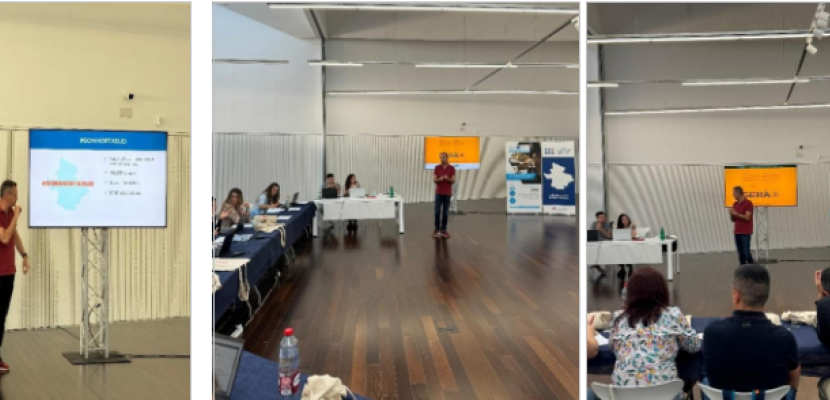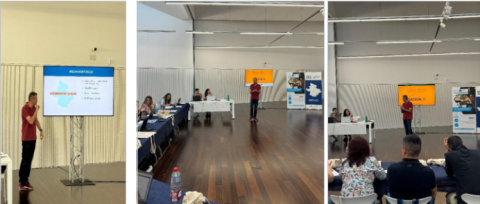
Serà 2030 plan for the future of the region by 2030, based on the Sustainable Development Goals.

About this good practice
1. Problem addressed and context
The SERÀ 2030 project, promoted by the Fundació Horta Sud, addresses the challenge of developing a sustainable and cohesive plan to improve the quality of life in the Horta Sud region. The initiative aims to implement SDGs in the region, recognising that a collaborative and coordinated approach is crucial to overcome current and future challenges.
2. Scope and implementation of practice
SERÀ 2030 is structured around a series of dialogue and discussion spaces that include diverse community stakeholders. These roundtables are designed to identify needs and formulate concrete actions that promote sustainable development.
PHASES:
Diagnosis and planning: A comprehensive analysis of the current situation in l'Horta Sud is carried out, identifying key areas requiring attention and improvement.
Community participation: The active participation of civil society, non-governmental organisations, businesses and public entities is promoted in the planning and implementation process.
Concrete actions: Specific projects are developed to improve the environmental, social and economic sustainability of the region. These projects range from the promotion of renewable energies to the improvement of urban infrastructure and the creation of green jobs.
Monitoring and evaluation.
SERÀ2030 is a comprehensive and collaborative response to the socio-economic and environmental challenges, aimed at building a sustainable and resilient future for the community.
Expert opinion
Resources needed
Financial Resources
Funding for the SERÀ 2030 project comes mainly from the Diputació de València, the Mancomunitat Horta Sud, and the Fundació Horta Sud.
Coordinating Team and technical staff
Volunteers and Collaborators
Experts and Consultants
Public Officials: Staff of the public bodies involved
Evidence of success
Renewable Energy Projects
Sustainable Mobility: Development of infrastructures to promote the use of sustainable transport, improving air quality and reducing congestion.
Circular Economy: Creation of circular economy projects that promote the reuse and recycling of resources, reducing waste and promoting economic sustainability.
Progress Indicators:
Reduction of CO2 Emissions
Increased Citizen Participation
Generation of Green Jobs
Recognition and Awards
Potential for learning or transfer
Participatory Approach: SERÀ 2030 is based on the inclusion of various stakeholders (citizens, businesses, associations, public institutions) in decision-making.
Alignment with the SDGs
Inter-institutional Collaboration: This model can be replicated in other regions to maximise the use of available resources and achieve greater efficiency.
Continuous Monitoring and Evaluation
Factors that can hinder Transfer
Socio-cultural differences: It is crucial to adapt methodologies to specific contexts to ensure successful implementation.
Resource availability: Lack of financial and human resources may hinder the replication of the project. It is essential to secure funding sources and a dedicated team to implement similar initiatives.
Political and Legal Context: Regions with restrictive or unstable legal frameworks may find it difficult to adopt and adapt SERÀ 2030 practices.
Further information
Images

Documents
SERÀ2030_Good practice.pdf
Website
Good practice owner
You can contact the good practice owner below for more detailed information.
